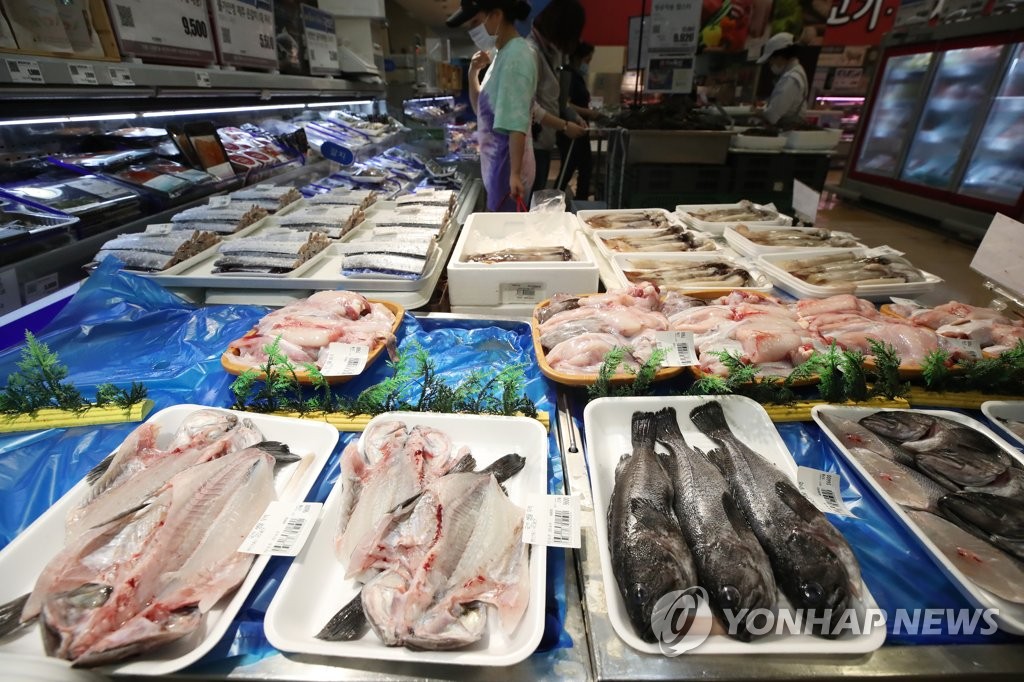Corona, low oil prices, welfare policy impact… Core inflation rose to the lowest level since the IMF
December prices 0.5%↑… Monthly increase rate is also around 0% for 3 consecutive months
![[그래픽] Consumer price index fluctuations](https://i0.wp.com/img5.yna.co.kr/etc/graphic/YH/2020/12/31/GYH2020123100030004400_P2.jpg?w=560&ssl=1)
(Seoul = Yonhap News) Reporter Jae-yoon Lee = According to the December and annual consumer price trends released by the National Statistical Office on the 31st, this year’s consumer price index was 105.42 (2015 = 100), up 0.5% from a year ago. This is the first time since 1965, when related statistics were written, for the second year in a row, following 0.4% last year. [email protected] Twitter @yonhap_graphics Facebook tuney.kr/LeYN1
(Sejong = Yonhap News) Reporter Chae Yeon Lee Bo-bae and Kwak Min-seo = Following last year, the consumer inflation rate remained at the 0% level, recording the 0% level for the first time in history.
Due to the new coronavirus infection (Corona 19), service prices such as eating out fell and low oil prices were largely affected. Government welfare policies such as free education also lowered the inflation rate.
However, fresh foods such as agricultural and marine products have risen significantly.
◇ Annual price of 0% for 2 consecutive years… First after statistics
According to the December and annual consumer price trend released by the National Statistical Office on the 31st, the consumer price index this year was 105.42 (2015 = 100), up 0.5% from a year ago.
The annual increase in consumer prices was around 1% in 2016 (1.0%), 2017 (1.9%), and 2018 (1.5%), and then fell to 0% in 2019 (0.4%) and this year.
This is the first time since 1965, when statistics were written, that the rate of increase in consumer prices reached 0% for two consecutive years.
There were four times in total, including 2015 (0.7%), when low oil prices and economic slump, and 1999 (0.8%), immediately after the international monetary fund (IMF) financial crisis, in the 0% level of annual consumer price increase.
Statistical Office Economic Trend Statistics Reviewer Ahn Hyeong-jun said, “It is because the price of petroleum products fell as international oil prices fell in the aftermath of Corona 19, and the rise in personal service prices such as eating out and leisure was limited by the influence of social distancing.” said.
He explained, “The drop in public service prices due to government policy support such as high school payment support has also had an impact.”

(Sejong = Yonhap News) Reporter Kim Joo-hyung = Ahn Hyeong-jun, an economic trend statistics examiner at the National Statistical Office, briefing the December 2020 and annual consumer price trends at the Sejong City Government Complex on the morning of the 31st. 2020.12.31 [email protected]
◇ The rise in personal services declined and public services declined… Agricultural and marine products 6.7%↑
This year, service prices are up 0.3% from a year ago.
Personal services such as dining out, hit by Corona 19, rose 1.2%, recording the lowest increase rate in 8 years since 2012 (1.1%).
Public services declined 1.9% due to the impact of corona 19-related policy support and education support. This is the lowest level since statistics were prepared in 1985, and this is the first time that it has declined for two consecutive years following last year (-0.5%).
The rent rose 0.2%. Jeonse rose 0.3% and monthly rent rose 0.1%.
Products rose 0.9%, which was a bigger increase than services.
In particular, the price of agricultural and livestock products rose 6.7%, reaching the highest level since 2011 (9.2%). Prices of livestock products such as pork (10.7%) and agricultural products such as Chinese cabbage (41.7%) were remarkable.
Industrial products fell 0.2%. This is due to the 7.3% drop in oil prices as oil prices fell due to the spread of Corona 19 abroad. Electricity, water and gas also fell 1.4% at low oil prices.

[연합뉴스 자료사진]
◇ Source price lowest since IMF… Government “too early” over deflation concerns
The agricultural products and petroleum exclusion index (root price) rose 0.7%. This is the lowest rate of increase since 1999 (0.3%), when the financial crisis escaped.
The food and energy exclusion index, which is the basis of the Organization for Economic Cooperation and Development (OECD) standards, rose 0.4%. It is also the lowest since 1999 (-0.2%).
On the other hand, the fresh food index rose 9.0%, recording the highest rate since 2010 (21.3%).
The living price index, which shows the perceived price, rose 0.4%, showing the highest increase since 2018 (1.6%).
There are also concerns about deflation as prices are low in the 0% range for the second consecutive year.
Regarding this, an official from the Ministry of Strategy and Finance said, “This year’s end is the special situation of Corona 19 that has had a big impact,” and said, “The deflation concern is too early.”
The Ministry of Science and Technology predicted that if domestic demand gradually recovers next year and policy downward pressures such as free education and free meals decrease, inflation will increase from this year.
However, we viewed the development of Corona 19 and the price movement of raw materials such as crude oil as variables.

[연합뉴스 자료사진]
◇ 0.5% of prices in December… 0% for 3 consecutive months
In December, the consumer price index was 105.67 (2015 = 100), up 0.5% from a year ago.
The monthly inflation rate has remained at the 0% level for the third month following October (0.1%) and November (0.6%).
Vegetable prices stabilized, agricultural and livestock products (9.7%) increased slower than in November (11.1%), and oil prices fell, oil prices (-12.6%) declined from last month (-14.8%).
Due to the re-proliferation of Corona 19 and social distancing, the personal service increase rate was only 1.3%.
The rent rose 0.7%, continuing the rise for the eighth consecutive month since May. Jeonse (0.9%) has been rising for eight consecutive months, and monthly rent (0.4%) has been rising for seven consecutive months.
In December, the core price rose 0.9%, and the rate of increase fell back to 0%.
Unauthorized reproduction-redistribution prohibited>
2020/12/31 10:36 sent
